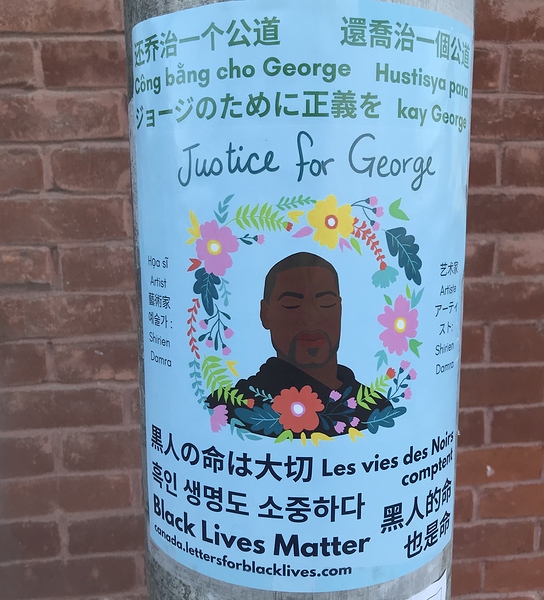
Mariam El-Behiry
After the death of George Floyd at the hands of a Minneapolis police officer, weeks of global protests, and further deaths of Black men, the Black Lives Matter (BLM) movement is the biggest story globally. And the issues behind it also touch those living in Centretown.
Whether by signing petititions, donating, or attending a protest, allies are examining how they can make a difference and start conversations about similar issues in their own communities.
During the second week of June, I spoke by phone with two Centretown residents involved with these issues: Robert Alsberry, an African-American nurse, and Melissa Redmond, a professor at Carleton University’s school of social work. During our conversations, we discussed the historical importance of intersectionality in activism, how media propaganda has shaped the global response to protests, and what’s next for Black Lives Matter.
Racial injustice exists here too. Robert has dealt with overt racism and homophobia in Ottawa and in Centretown. As an African-American, he recognizes Canada has its own systemic issues, “I don’t feel any less or more safe in Ottawa than I do in any other city I have been to. Being a queer Black person, there is always a sense of vigilance. That fear is constant.”
Melissa says that Ottawa is no more a safe haven for people of colour (POC) than any other city. “Ottawa is a very white town. Any POC knows that. Centretown is a community I am proud to live in but I don’t feel any safer in it than any neighbourhoods in Ottawa.”
As the discussion shifts to the exclusion of black people from social justice movements and milestones, both Robert and Melissa highlighted the importance of recognizing intersectionality (where people are disadvantaged by multiple sources of oppression, such as both race and gender).
“Many movements use the labour of Black people without inviting them to the table,” Melissa says. “The reason that we are experiencing anti-Blackness is because they thought that they can carve Blackness out of humanity without understanding how it intersects with other movements. Pushing the concept of Black intersectionality is the responsible thing to do.”
Referring to the past exclusion of LGBTQ and women from the BLM movement, Robert adds, “It is important that we don’t recreate structures around ourselves that oppressors have built upon us in the past.”
On the future of the movement and its progress thus far, Melissa asks, “It’s interesting that we are looking for progress when it’s only been a few weeks. What does progress look like relative to a hundred years of history?”
When asked about whether she would consider the arrest of the police officers involved in Floyd’s death, progress, she says, “The police officers arrested are symptoms of the problem but not the problem. Systemic racism is the problem. The idea that we would consider four people caught in a snuff film getting arrested as progress is absurd to me.”
The trending abbreviation ACAB (All Cops Are Bastards) is controversial; many are behind it, while others believe it is an over-generalization. Robert’s view is that, “The police, as an institution, has not served communities I am a part of. Some people are well-meaning and join the force to make a difference but, as an institution, they have done more harm than good.”
To end the conversations, I ask Robert and Melissa how they think allies should support the BLM movement in ways other than protest, as we are still fighting a global pandemic.
Robert urges young people to do a self-assessment of their own strengths and weaknesses, as well as those of their communities.
On the other hand, Melissa urges us to start asking questions that are not rooted in white supremacy–and to start taking Black people at their words and proceed accordingly.
“Hearing stories about how I was treated differently because of my race does not shift the way you think but only cements the idea that I should be treated like this. If this was an issue of education, facts would rule.
“This is an issue of privilege. People of privilege, specifically old white men in power, are choosing to deny facts.”
